Physically challenged, MENTALLY STRONG
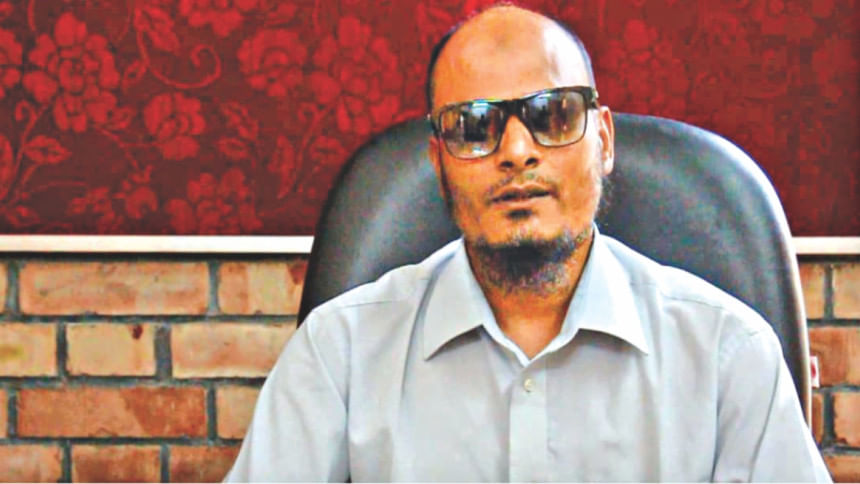
Since his birth, Likhon cannot move any of his limbs on his own. Born in a poor family, the physically challenged man is confined to wheelchair all the time and has to take his mother's help to meet his daily needs.
Still, he does not want to be considered a burden. In fact, his willpower has brought him a feat only a few can achieve overcoming hurdles like his.
Thanks to his indomitable spirit, Likhon, 25, is now a self-dependent man who, with the help of his mother, has been running a shop in Malithapara of Pabna's Ishwardi upazila for the last 10 years.
“God made me disabled but I don't want anyone's pity. It's true that I have no strength in my hands or legs but my brain works quite well,” he said, adding that he was earning enough to run his family of three. His father, who was a farmer, died several years ago.
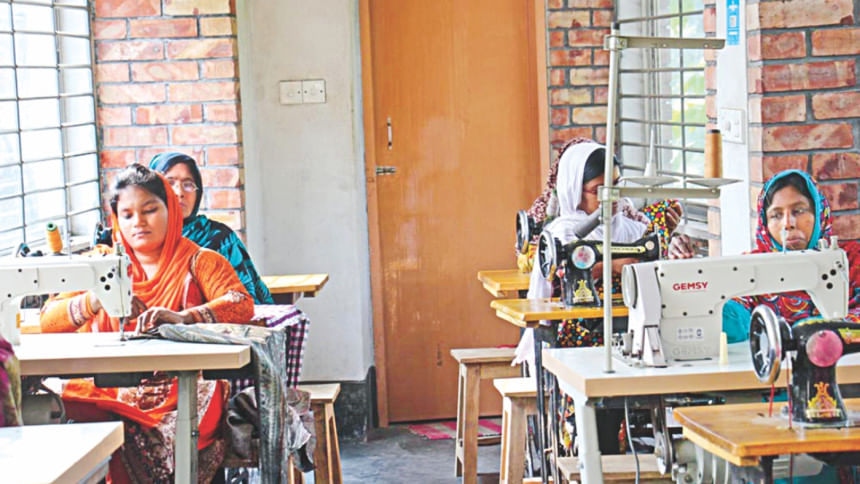
Likhon is not the only physically challenged person in the upazila who have been trying hard to overcome their disabilities and become self reliant. In fact, Ishwardi has 629 such people who have their own organisation called Protibandhi Punorbashon and Manobadhikar Samity.
The organisation works for the rehabilitation and development of people with all sorts of disabilities, by providing them with motivation for work along with training on sewing, computers, dairy farming, shop keeping and other skills. And many of its beneficiaries, including Likhon, have changed their lives with its help.
The Samity, which organises the trainings, is run by funds collected from its members.
Sanwar Hossain, himself a visually-impaired person, established the organisation in 2004 with just 21 members. The man is from Char-Rooppur Jigatola area of the upazila.
With the International Day of Persons with Disabilities being observed across the world today, Sanwar, 45, has expressed his determination to work more for the people with disabilities. “We don't want anyone like us to beg on streets.”
Recalling the opening of the Samity, he said, "I was a street hawker selling chocolates in the ferry ghat area. One day in 2001, they closed down the ferry ghat and I became unemployed. I was not getting any job either as I cannot see.”
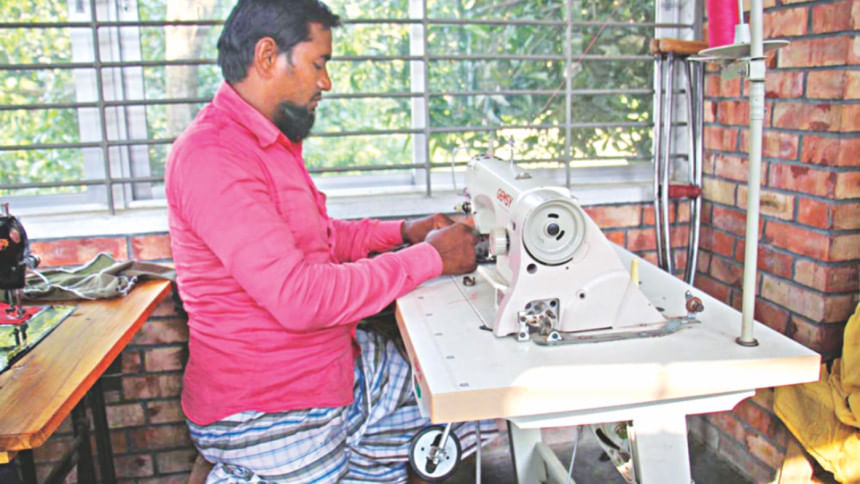
Later, he gathered and organised the 21 physically challenged people in the upazila and started the organisation so that they could learn various skills from it and become self reliant, instead of being jobless and beg.
So far, 629 physically challenged people in that upazila got training for self employment and other supports from the organisation, and all of them are doing income-generating activities according to their abilities, Sanwar said.
Of them, 20 are making clothes, 25 running shops, 191 operating dairy farms and the rest are performing household-based financial activities as sewing Kantha, handicrafts etc.
Some 50 to 60 physically challenged students are also getting supports for their education and training from the organisation.
Visiting several places of the upazila, this correspondent saw many physically challenged people working at home. They said they received trainings from the Samity.
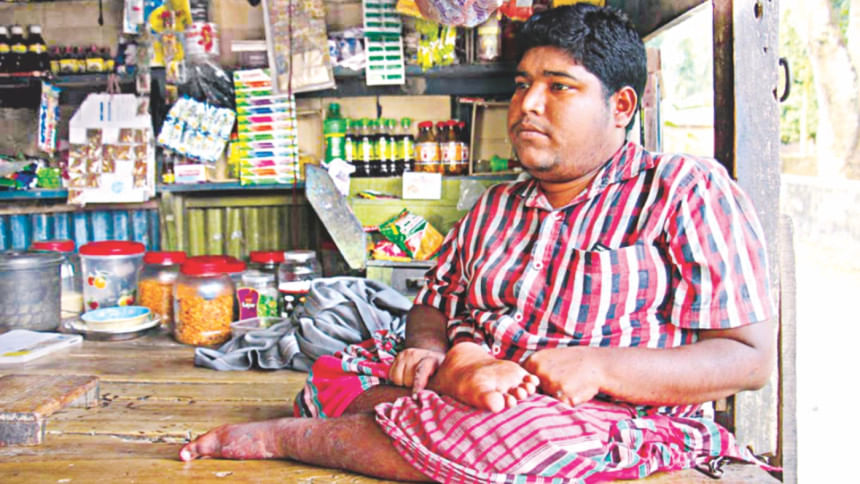
Sanwar said the organisation has recently opened a small sewing training centre with a mini garment factory to accommodate the physically challenged workers on its premises.
Mukti Khatun, 30, crawls on her hands to the centre every day with the determination to earn for her family. Daughter of Sadeque Mondol of Shahapur Azizultola, Mukti lost control over her legs after a prolonged fever at the age of two.
"It is quite easy to earn Tk 150 to Tk 200 a day if I can sew four to five dresses. But unfortunately, I don't have much work now,” she said, urging the locals to give her work.
On the issue, Sanwar said the EPZ factories at Ishwardi give work orders to many small factories in the upazila but not to the physically challenged workers. He called for government support for ensuring that they get work so that they can lead respectable lives.
Contacted, Monsur Uddin, district disability affairs officer in Pabna, said only government support would not be enough.
“We must change our mindset. We should think that the physically challenged people are the members of this society and they have the right to enjoy all the benefits like we do,” he said, adding some 17,400 people with disabilities came under treatment and logistic support benefits of the government in the district.
A disability is a condition or function judged to be significantly impaired relative to the usual standard of an individual of their group.
According to the social welfare ministry, there are about 15.1 lakh people with disabilities in Bangladesh.
The persons with disabilities face problems particularly in communication in rural and remote areas which are difficult to reach.
As in many other developing countries, in Bangladesh people with disabilities tend to be neglected and as a result are inadequately protected or supported. Several studies in Bangladesh showed how disabled people often live in unfriendly and hostile environments, encounter non-cooperation, ill treatment, neglect and hostility in the families, in communities, in wider society, and in government institutions.
Today, the world population is over seven billion and more than one billion people, or approximately 15 percent, live with some form of disability. Eighty percent of them live in developing countries, according to the United Nations.
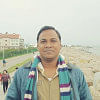
 For all latest news, follow The Daily Star's Google News channel.
For all latest news, follow The Daily Star's Google News channel. 



Comments